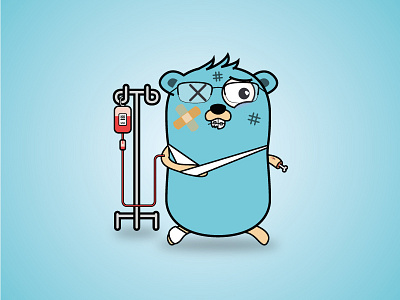# README
Understanding Go's errgroup Package: Group
The errgroup package in Go provides a straightforward way to manage the lifecycle of a group of goroutines, and their
associated error handling.

Table of Contents
Introduction to Group
The errgroup.Group type provides synchronisation, error propagation, and Context cancellation for groups of goroutines
working on sub-tasks of a common task.
Usage of Group
g, ctx := errgroup.WithContext(context.Background())
g.Go(func() error {
// Your code here
return nil // return an error if something goes wrong
})
// Wait for all goroutines to finish and collect any errors
err := g.Wait()
Examples and tests
See package
Use Cases
- Concurrent Error Handling:
- Executing multiple goroutines and aggregating their errors.
- Context Propagation:
- Propagating context and cancellation signals across a group of goroutines.
Common Pitfalls
- Error Ignorance:
- Ignoring errors returned by
Group.Go.
- Ignoring errors returned by
- Misusing Context:
- Misusing the context returned by
errgroup.WithContextcan lead to unintended behavior.
For instance, storing values in the context that are supposed to be accessed by goroutines may lead to race conditions if not handled properly.
- Misusing the context returned by
Best Practices
- Error Handling:
- Always handle errors returned by
Group.Go.
- Always handle errors returned by
- Context Usage:
- Use the context returned by
errgroup.WithContextto propagate cancellation.
- Use the context returned by